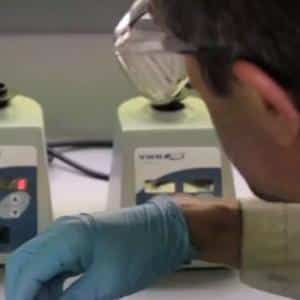 HB 4271 is officially called The Provisioning Centers Act of 2013. Sponsored by Rep. Michael Callton, R- Nashville, it creates the ability for local governments to license and zone in medical marijuana dispensaries- and be protected from state or county-level intrusion.
HB 4271 is officially called The Provisioning Centers Act of 2013. Sponsored by Rep. Michael Callton, R- Nashville, it creates the ability for local governments to license and zone in medical marijuana dispensaries- and be protected from state or county-level intrusion.
What those provisioning centers would look like, and how they would operate, is being defined by the House of Representatives when they return from summer break. A news story reported that Callton was ready to give in to demands from fellow Republicans, including House Judiciary Committee Chair Kevin Cotter, to make changes in the bill to secure a vote in the committee.
“Callton says that Republicans in the House want some changes made to the bill before it moves out of committee. That will likely include mandatory testing of medical pot for things like pesticides and mold,” the Michigan Radio article said.
One of the organizations working to advance HB 4271 is the National Patients Rights Association (NPRA). “We are working to ensure that proper testing standards are in place and are uniform,” said NPRA spokesperson Robin Schneider, who cautioned that NPRA is not advocating for mandatory testing. “Patients should have access to medicine that’s free of toxins and molds,” Schneider said.
Callton made big news when he announced his PAC had received significant donations from the medical marijuana community, rumored to total at $60,000 in 2012. He has mentioned during public appearances that the bill will be altered to address at least one of the concerns expressed to his office by medical marijuana community representatives- cultivation of cannabis by the actual provisioning centers themselves.
In a comment on the Michigan Radio website devoted to the story, noted Detroit cannabis attorney Matthew Abel wrote, “Let’s get on with it, already! This is a public health and public safety issue.” Abel is the current Executive Director of the Michigan chapter of NORML.
Greg Pawlowski of Woodward Health Solutions in Detroit said, “I don’t feel comfortable making testing of cannabis mandatory but it should be available for those that want it, especially those with sensitivities or allergies.” Pawlowski also serves on the board of directors of Americans for Safe Access- Michigan.
“There is no compelling reason to make marijuana testing mandatory because there is no evidence to suggest that contaminated marijuana is a problem in Michigan today,” said Jamie Lowell of 3rd Coast Compassion Center in Ypsilanti, who is also on the ASA- Michigan board of directors.
Several companies in Michigan test marijuana, including Michigan Testing Authority and Iron Labs. Equal access to testing, increased cost, frequency of testing and uniformly-applied standards continue to be concerns expressed by the marijuana community with mandatory testing. Callton has not released an amended version of HB 4271 for his supporters to evaluate, and until that S-1 version is made public all comments about the bill are speculative- including those coming from Callton himself.
Source: The Compassion Chronicles







